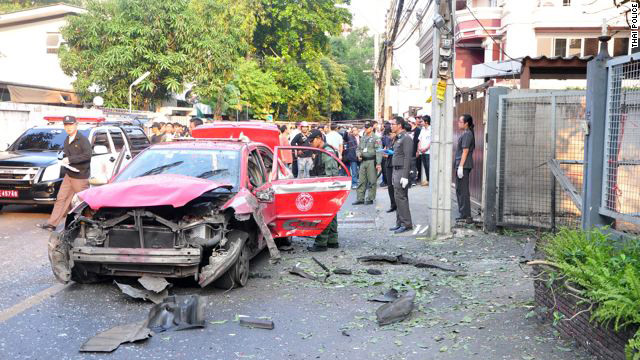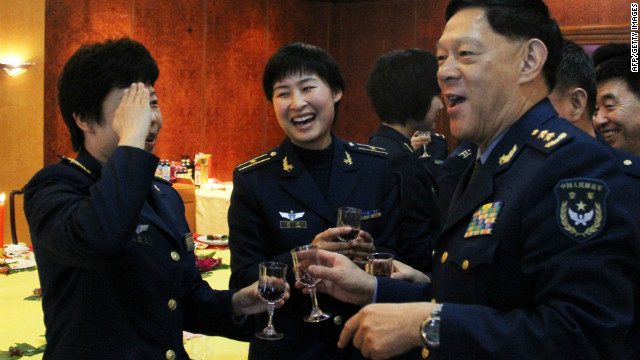More than 100 Taliban fighters crossed over from Afghanistan and attacked three Pakistani military posts Sunday night, killing at least eight soldiers, Pakistani military officials said.
WeLcOme To 21
Senin, 25 Juni 2012
Eight Pakistani soldiers killed in cross-border attack
More than 100 Taliban fighters crossed over from Afghanistan and attacked three Pakistani military posts Sunday night, killing at least eight soldiers, Pakistani military officials said.
Malaysian court: Iranian can be extradited to Thailand over Bangkok blasts

Chinese women push for a place in space

Facebook now lets you edit comments

Kamis, 26 April 2012
adjective clause
They are on the bus.
| adjective clause |
The children on the bus are going to visit the museum.
Jumat, 23 Maret 2012
India boycotts EU aviation carbon charge
 Indian airlines are not going to pay the EU carbon charge, civil aviation minister Ajit Singh insists
Indian airlines are not going to pay the EU carbon charge, civil aviation minister Ajit Singh insists Indian airlines will not comply with the European Union's (EU) carbon charging scheme, according to civil aviation minister Ajit Singh.
The EU has directed Indian carriers to submit the emissions details of their aircraft by 31 March.
But Mr Singh told parliament that "no Indian carrier is submitting them in view of the position of the government".
Last month, China said its airlines would not pay the EU charge.
Many other countries, including Russia and the US, have also objected to the scheme, under which airlines that exceed tight emission limits must buy carbon credits.
They see this as a tax on CO2 emissions from aircraft flying to or from destinations outside Europe and say it fails to comply with international law.
Brussels has insisted the carbon charge is essential if it is to meet its obligation to reduce emissions by 20% by 2020.
In December 2011, the European Court of Justice ruled that the EU charge was legal.
The charge, which the EU says could make long-haul flights up to 12 euros ($16; £10) more expensive, was introduced in January, though airlines will not have to start paying it until next year.
China to end organ donations from executed prisoners
China has pledged to end the practice of taking organs from executed prisoners within the next five years, state media report.
Officials say the country would instead rely on a new national donation system for organ transplants.
Prisoners account for two-thirds of China's transplant organs, according to previous estimates from state media.
Human rights groups say death row inmates are pressured to donate organs - China denies such allegations.
Correspondents say that China has long said it intends to reduce reliance on prisoners for organ donation, but the sheer volume of organs needed may make this difficult to achieve within the timeframe set out.
Official figures from the health ministry show that about 1.5 million people need transplants, but only 10,000 are performed annually, by state-run agency Xinhua says.
Huang Jiefu, vice minister of health, was quoted by Xinhua as saying that a trial system for public organ donation has been launched in some areas.
"The pledge to abolish organ donations from condemned prisoners represents the resolve of the government," he said.
He added that organ donations from prisoners were not ideal because infections are usually high, affecting the long-term survival rates of those who undergo the transplants.
Rights groups estimate that China puts to death thousands of prisoners a year.
Official figures, however, remain a state secret, according to the BBC's Martin Patience in Beijing.
He adds that the country faces a severe shortage of organ donors, partly because many people do not want to donate organs due to the cultural belief of that they should be buried whole.
This has led to a thriving black market. Officials outlawed organ trafficking five years ago, but it still remains a problem.
The Red Cross Society of China has also said that guidelines would be issued regarding financial aid to families of the deceased organ donors to help curb the illegal organ trade.